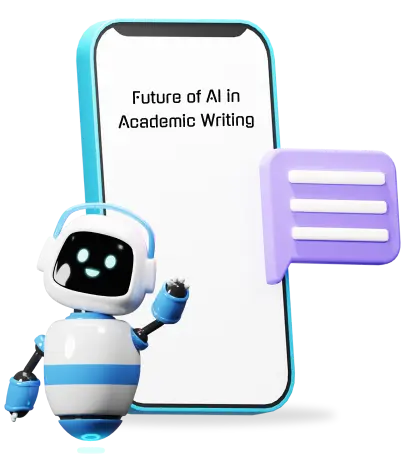Have you ever wondered why grades and feedback in school can sometimes seem confusing or slow?
Well, it's because the old way of doing things can have some issues. Grading papers by hand takes a lot of time, and sometimes teachers might give different scores for the same work.
Plus, getting helpful feedback on how to improve can be tricky.
But guess what? There's a cool new solution called Artificial Intelligence, or AI for short. It's like a super smart computer that can help with grading and feedback in a better way.
In this blog, we're going to dive into how AI is changing the game when it comes to grading and feedback in school.
We'll see how AI can make grading faster and more fair and how it can give you really useful tips to become even better at your studies.
So, let's buckle up and take a journey into the world of AI in grading and feedback!
AI has stepped onto the educational stage with remarkable prowess, offering a transformative solution to traditional grading methods.
Let’s delve deeper into the significant role that AI plays in revolutionizing the way assignments and tests are evaluated.
One of the standout features of AI in grading is its capacity to automate the grading process.
AI algorithms can swiftly analyze answers, whether they're multiple-choice, short answer, or even essays, allowing educators to allocate their time more effectively.
AI brings a level of consistency and objectivity that can sometimes elude human graders.
While humans may have off days or personal biases, AI algorithms adhere to predefined criteria, ensuring every student receives a fair assessment.
This consistency not only benefits students but also assures educators of reliable evaluation standards.
Time is a precious commodity in education, and AI has the power to save plenty of it.
Complex algorithms can process a large volume of assessments in a fraction of the time it would take a human.
This efficiency gives teachers more opportunities to focus on personalized instruction and engage with their students on a deeper level.
Teachers often find themselves grappling with overwhelming workloads during peak grading seasons.
AI's ability to handle repetitive and time-consuming tasks relieves teachers from the pressure of grading large numbers of assignments within tight deadlines.
This shift enables educators to devote more attention to enhancing their teaching methods and nurturing student growth.
Artificial Intelligence (AI) has emerged as a dynamic catalyst, revolutionizing the way feedback is given and received.
Let’s explore how AI enhances feedback mechanisms, making them more valuable and impactful.
AI has the ability to provide personalized feedback tailored to individual students' needs.
Whether it's identifying misconceptions, highlighting strengths, or suggesting areas for improvement, AI can instantly deliver feedback that is relevant and actionable.
This real-time input empowers students to address their weaknesses promptly, fostering continuous learning.
Unlike human feedback, which can sometimes be subjective, AI feedback is rooted in objective analysis.
Algorithms assess responses based on predetermined criteria, ensuring that students receive consistent and unbiased evaluations.
Moreover, AI-generated feedback often presents constructive critique, guiding students toward refining their understanding and skills.
AI-driven feedback encourages self-assessment and reflection among students.
By providing detailed insights into their performance, AI equips students with the tools to evaluate their work critically.
This empowers them to take ownership of their learning journey, actively seeking improvement and engaging in a more meaningful educational experience.
AI-enabled feedback doesn't replace the teacher-student connection; instead, it enhances collaborative learning.
With AI handling routine assessments and feedback, educators can dedicate more time to meaningful interactions with students.
This allows for deeper discussions, addressing individual concerns, and nurturing a collaborative learning environment.
Embracing Artificial Intelligence (AI) in grading and feedback mechanisms brings a multitude of advantages that significantly impact the educational landscape.
Here are some compelling benefits that an essay grader brings for both educators and students.
AI accelerates the grading process, enabling swift evaluation of assignments and tests.
What could take hours or even days for human graders can be accomplished by AI algorithms in a fraction of the time. This efficiency allows educators to dedicate more energy to crafting impactful lesson plans and fostering student engagement.
AI ensures uniform and unbiased evaluations by adhering to predefined criteria.
It eliminates the variability that can arise due to human factors, ensuring that every student is assessed using the same standards. This consistency promotes fairness, mitigating concerns about disparate grading practices.
AI-powered feedback goes beyond assigning scores; it tailors learning paths for individual students.
By analyzing strengths and weaknesses, AI suggests targeted resources to bridge knowledge gaps. This AI personalization approach helps students progress at their own pace and engage more deeply with the material.
AI feedback provides instant insights into student performance. Whether it's identifying mistakes or commending correct answers, immediate feedback facilitates a deeper understanding of concepts.
This rapid response encourages continuous learning and minimizes the time spent on misconceptions.
AI streamlines resource allocation, freeing teachers from repetitive grading tasks.
This allows educators to focus on qualitative aspects of teaching, including fostering critical thinking, nurturing creativity, and cultivating interactive learning experiences.
The dynamic interaction between students and AI-generated feedback boosts engagement.
Students receive quick acknowledgment for correct answers and constructive guidance for improvement. This positive reinforcement keeps students motivated and actively participating in their education, having a positive impact on student performance.
The integration of Artificial Intelligence (AI) into grading and feedback mechanisms holds immense promise.
However, it's essential to address concerns and limitations associated with this transformative approach.
Let’s look at some of the apprehensions and considerations surrounding AI-driven assessment systems.
A common concern is that AI might replace human interaction, diminishing the personal connection between teachers and students.
While AI enhances efficiency, humans are irreplaceable for mentorship, emotional support, and tailored guidance.
Ethical considerations arise in AI-driven assessment. Bias in AI algorithms, unintentionally favoring certain demographics or penalizing others, can perpetuate inequalities.
Vigilance is necessary to ensure that AI-driven systems are continuously refined to eliminate bias and promote equal opportunities for all students.
AI excels at objective analysis but might struggle with the nuances of subjective understanding, such as assessing creativity or interpreting complex arguments.
Educators must strike a balance, leveraging AI's efficiency for objective assessments while reserving their expertise for more nuanced evaluation.
An overreliance on AI technology might lead to a situation where students solely seek validation from AI-generated scores and feedback.
Balancing AI's benefits with nurturing critical thinking and independent problem-solving skills is crucial to avoid creating a generation that relies solely on technology for learning.
AI Tools for Data Analysis require access to student data for accurate assessment.
Ensuring robust data privacy measures is paramount, protecting sensitive information from breaches and unauthorized use.
Clear communication about data usage and security is vital to building trust among students and parents.
Adopting AI-driven assessment systems necessitates teacher training and familiarity.
Educators need support in understanding the technology, interpreting AI-generated insights, and effectively integrating these tools into their teaching methodologies.
Striking the right balance between automation and human oversight is critical.
While AI accelerates processes, educators must have the ability to review and adjust assessments, ensuring that students receive accurate evaluations.
In conclusion, the fusion of AI with grading and feedback mechanisms has ignited a transformative revolution in education.
As we've explored in this blog, AI brings efficiency, fairness, and personalization to assessment processes. However, it's important to tread the path of AI integration with mindfulness and addressing concerns.
If you’re looking to explore the AI Advantage in essay writing, then visit PerfectEssayWriter.ai.
Experience the power of this essay maker tool in crafting well-structured, coherent, and engaging essays.
Try PerfectEssayWriter.ai today and witness the future of essay writing at your fingertips.

WRITTEN BY
Cathy A. (Mass Communication, Education)
Cathy is a highly dedicated author who has been writing for the platform for over five years. With a Master's degree in Mass Communication, she is well-versed in various forms of writing such as articles, press releases, blog posts, and whitepapers. As an essay writing guide author at PerfectEssayWriter.ai, she has been helping students and professionals improve their writing skills by offering practical tips on research, citation, sentence structure, and style.
For more than five years now, Cathy has been one of our most hardworking authors on the platform. With a Masters degree in mass communication, she knows the ins and outs of professional writing. Clients often leave her glowing reviews for being an amazing writer who takes her work very seriously.
On This Page On This Page
Share this article
AI in Collaborative Learning Environments
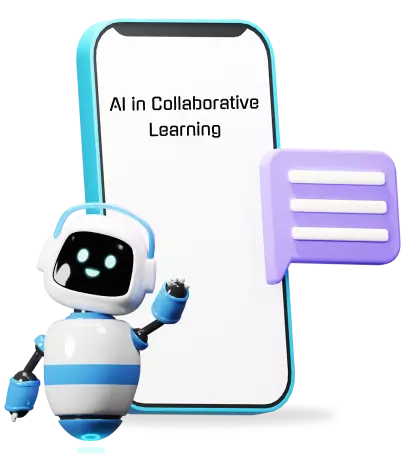
AI Tutors: Personalized Learning for Students in the Digital Classroom
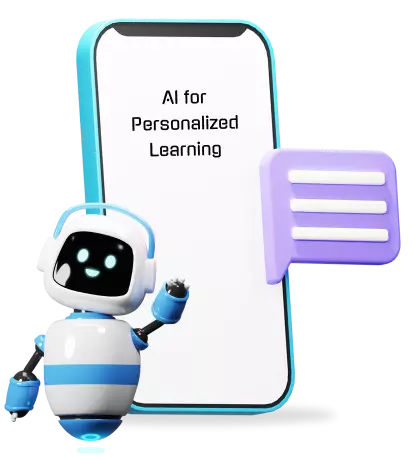
AI and the Future of Teacher-Parent Communication
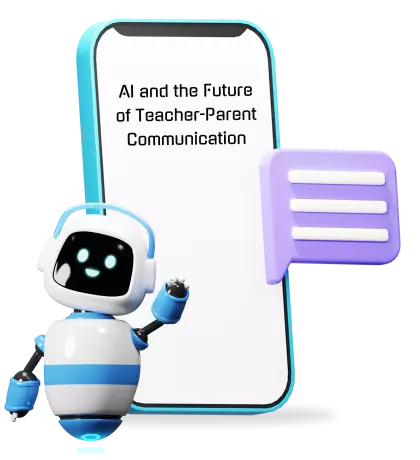
AI in Curriculum Design: Adapting Education for the Future
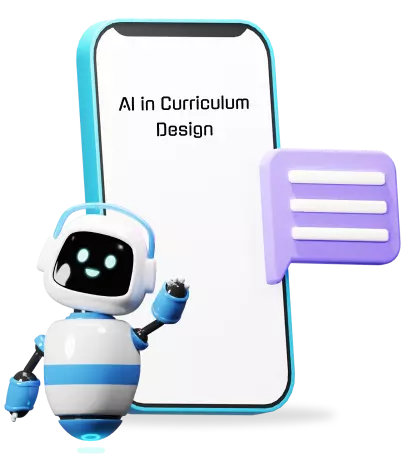
AI and Multilingual Education: Bridging Language Barriers in Learning
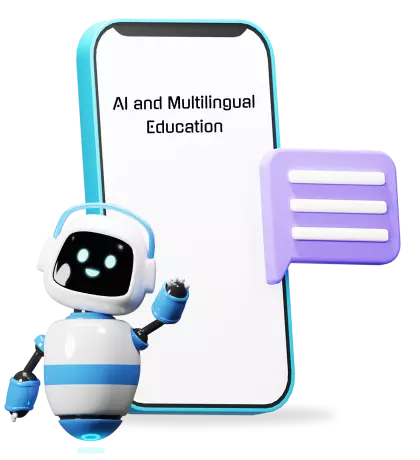
AI and Special Education: Empowering Students with Disabilities
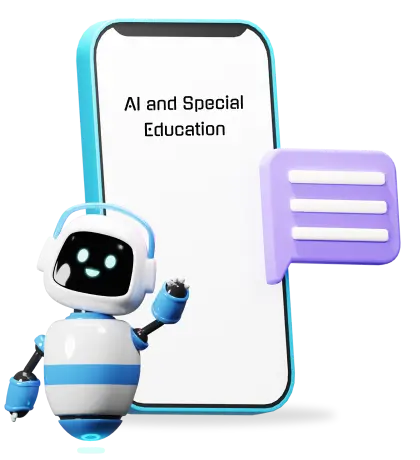
AI and Research Discovery
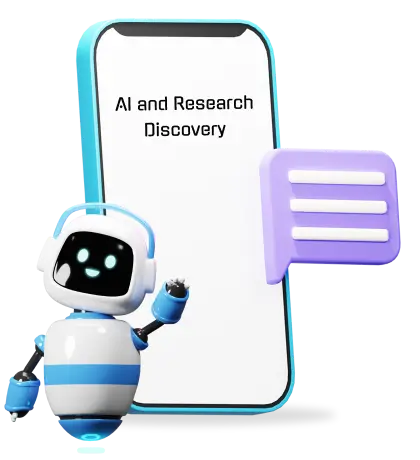
AI in Peer Review: Transforming the Academic Publishing Process
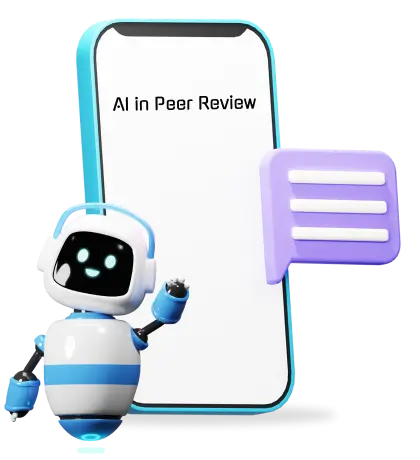
AI's Impact on Student Performance
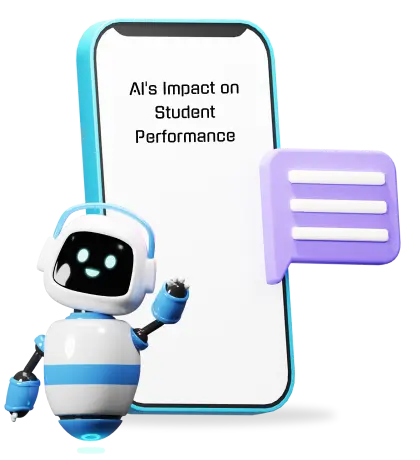
Ethical Considerations in AI Research: Ensuring Fairness and Bias Mitigation
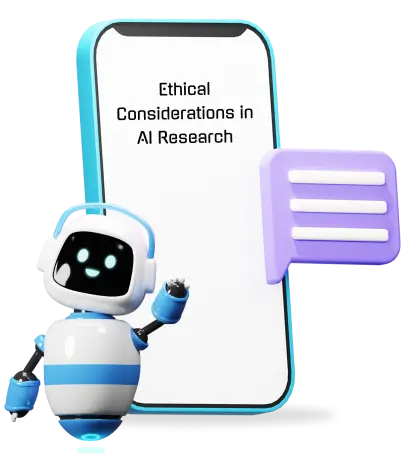
Ethical Considerations in AI-Generated Academic Content
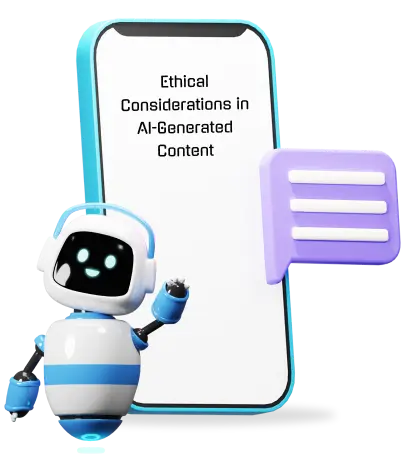
The Future of AI in Academic Writing: Trends and Predictions
